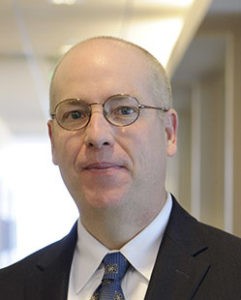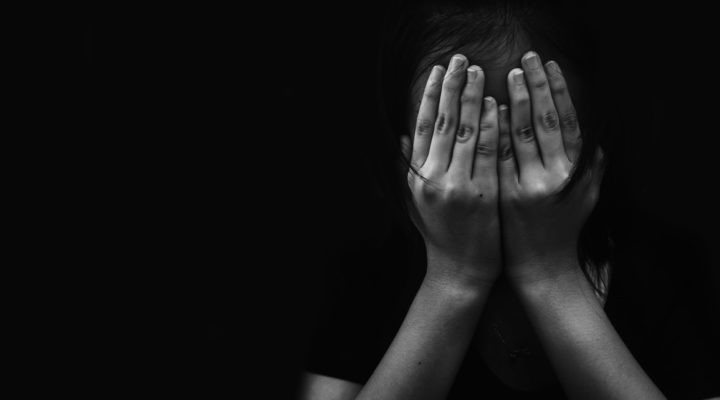I don’t think all police officers are bad people. I think many are good people, trying to do a very hard job for very little pay, and that they are doing so out of a real sense of service to the community. I am friends with such police officers and attend church with them, so I know they exist.
I once was firmly convinced that this was a fixed rule with only the rarest of exceptions. I thought that there were so few bad apples that they could not taint the whole barrel, and that the “good cops” could be counted on to effectively police the “bad cops,” protecting others from harm. I believed that our criminal justice system truly was just and that justice was indeed blind in terms of racial equality.

Chris Conley
I now know that those rosy, non-critical, views were rooted in blissful ignorance and white privilege, not in reality. Those views largely died for me on Feb. 12, 1998. They died with a 10-year-old Black boy named Jamorio Montez Marshall.
Jamorio was sent home from school, accused of having stolen five dollars from a classmate’s backpack. He was then beaten to death by his mother and her boyfriend. They were not alone, however, in their guilt for Jamorio’s brutal, senseless death.
Shortly after the violence began, a duplex neighbor courageously called 911, reporting what she believed to be an act of child abuse. Two white police officers responded to the scene. They were met at the door by Jamorio’s mother and by her boyfriend, who was holding a leather belt in his hand. The buckle had been ominously removed.
The officers did not ask to see Jamorio. They did not try to determine the relationship, if any, between the belt-wielding man and the child. They told the two adults that it was their right to spank the child, but not to let things “go too far.” They did not seek to discover whether there was a history of prior incidents involving Jamorio on file with the Department of Family and Children Services. There was.
“I don’t think all police officers are bad people. I think many are good people, trying to do a very hard job for very little pay.”
911 call transcripts revealed that less than 2 minutes lapsed between the time of the officers’ arrival at Jamorio’s front door and their departure from the scene. Jamorio’s fate was sealed. He was once more mercilessly beaten, this time for well over an hour, with the two adults taking turns, one holding the child down and the other beating Jamorio with the belt until his or her arm got tired, and then they would change places.
It was an unspeakably brutal and agonizing death, with medical examiners later equating Jamorio’s injuries to what they would expect to find after a fall from a 10-story building. Reluctantly, I agreed to represent Jamorio’s brothers and sisters in a wrongful death lawsuit against the Athens-Clarke County Police Department.
 That reluctance sprung from my assumption that there had to be some logical explanation for what would otherwise seem to be a gross dereliction of duty. Maybe the officers were over-worked and had to rush from the scene to another crisis. Maybe they had misunderstood the situation. The blissfully naive me simply could not grasp that the answer was much more sinister.
That reluctance sprung from my assumption that there had to be some logical explanation for what would otherwise seem to be a gross dereliction of duty. Maybe the officers were over-worked and had to rush from the scene to another crisis. Maybe they had misunderstood the situation. The blissfully naive me simply could not grasp that the answer was much more sinister.
All that changed during the depositions of the police officers. I’ll never forget the cold feeling that crept over me as one of these white officers explained without even a hint of reluctance that he did not spend more time on the scene because he had “real crimes” to investigate and because of his belief this was just how “those people” behaved.
I was shocked. I was changed. I began asking questions whose answers would eventually shred my assumption that the criminal justice system in America is remotely just in its treatment of persons of color.
As a long-time litigator in an area of law that is notably expert-witness-driven, I’m well acquainted with the notion that there are lies, damn lies, and statistics. That being said, decades of rigorous statistical analysis have revealed dramatic racial disparities that cut across our entire criminal justice system — disparities that are so pronounced and consistent that they cannot be attributed to chance, nor can they be explained away as an indirect result of economic racial disparity in America (so that what we are seeing is the impact of disparate levels of poverty in communities of color coupled with the close link between extreme poverty and crime).
No. The only possible explanation is that Black Americans find neither justice nor equality in our so-called criminal justice system, and that they are, instead, deprived of such fundamental rights based solely on the color of their skin.
“The only possible explanation is that Black Americans find neither justice nor equality in our so-called criminal justice system.”
By way of a notable recent example of such research, a study by Stanford’s Open Policing Project determined that Black drivers are 20% more likely to be stopped by police officers than their white counterparts. Any possibility of an innocent explanation for this gap evaporates in the face of the study’s further finding that this disparity almost completely disappeared as to arrests made at night — when it is difficult or impossible to see the driver’s skin color.
This same study helps show that the race-based discrimination does not end there at the moment of initial contact. Rather, Black drivers who are stopped are 1.5 to 2 times more likely to be searched as part of a traffic stop, even though multiple studies have shown that guns, drugs and other contraband are more likely to be found in cars driven by white persons.
As to the use of excessive or lethal force, the National Academy of Sciences published a study in August 2019 finding that Black men between the ages of 25 and 29 were three times more likely to be killed by police officers than were white men the same age. Black women were killed twice as often as white women.
Racism continues to operate in the place of equality or justice as we move from roadside stops to our courthouses, infecting arrest rates and conviction rates. For example, an ACLU study in April 2020 clearly portrays the race-fueled disparity in arrest rates finding that — even though almost identical percentages of Black and white persons use marijuana — Black persons are arrested for marijuana possession 3.5 times more often.
Once convicted, sentencing in America is likewise blatantly racist. For example, the University of Michigan School of Law undertook a study of federal court sentencing in 2014, finding that the average sentence for a white person convicted of a crime in our federal courts was 55 months. For Black persons, the average sentence was 90 months. Even when all possible confounding factors were accounted for, the study concluded that Black persons receive, on average, 9% to 13% longer sentences for identical criminal conduct that cannot be explained by any factor other than their race.
“It is with regard to the barbaric institution of capital punishment that racism is perhaps at its most self-evident.”
It is, however, with regard to the barbaric institution of capital punishment that racism is perhaps at its most self-evident. In particular, a pair of landmark studies by David Baldus, a professor at the University of Iowa, are truly chilling.
In his study of death penalty cases in Philadelphia between 1983 and 1993, Baldus determined that Black persons were 38% more likely to be sentenced to death based solely on their race. His study of capital punishment in Georgia in the 1980s found that prosecutors sought the death penalty 70% of the time in cases involving a Black killer and a white victim. Those same prosecutors sought the death penalty in only 15% of the cases involving a white killer and a Black victim.
As I type this, I am thankful for the news of April 20 from Minneapolis, and I pray that the conviction of Derek Chauvin will provide some sense of peace to George Floyd’s grieving family and that they can draw comfort and strength from even a vague semblance of justice for the brazen, cold-blooded murder of their loved one.
I am praying even more for committed efforts by all Christians — both inside and outside the criminal justice system — to tear up the racism that infects every stage of that system by its sinful and evil roots. I am also thinking of Jamorio and wondering how much more Black blood will have to be wrongfully spilled before that prayer becomes reality.
Chris Conley is an attorney and graduate of the University of Georgia and of the Emory University School of Law. He and his wife, Mary, live in Athens, Ga., where both are members and deacons at First Baptist Church. They have one son, Aaron, who also is an attorney, and a miniature schnauzer, Oso, whose career path remains uncertain.
Related articles:
What should we learn from the Derek Chauvin verdict? | Opinion by Mark Wingfield
USC study finds Blacks three times more likely to be stopped by police in LA County


